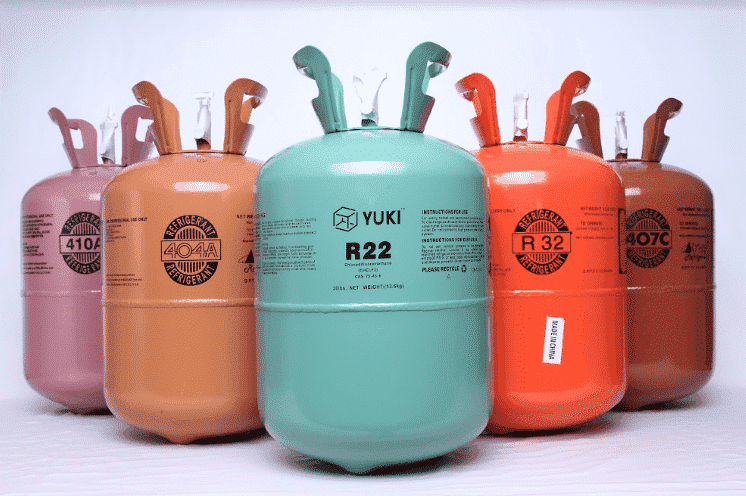
Refrigerant is a word that you may have heard in relation to your air conditioner or refrigerator, but do you know what it actually means? In this post, we will explain what refrigerant is, how it works, and why it is important for your cooling appliances. We will also answer some common questions about refrigerant and its environmental impact.
Refrigerant is a chemical compound capable of transitioning from liquid to gas and back again. During the process, its abilities to absorb and transfer heat have been the key to cooling, refrigeration and heat pump systems for many years.
Refrigerant works by changing its state from liquid to gas and back again in a continuous cycle. The cycle consists of four main steps: compression, condensation, expansion, and evaporation.
The cycle repeats until the desired temperature is reached in the indoor space or appliance.

Refrigerant is essential for cooling and refrigeration because it can carry a large amount of heat with relatively little energy consumption. By absorbing heat from one place and transferring it to another, refrigerant can create a cooling effect that lowers the temperature of the indoor space or appliance.
Refrigerant also has other benefits, such as:
Here are some frequently asked questions about refrigerant and their answers:
There are many types of refrigerant, but they can be broadly classified into three categories: chlorofluorocarbons (CFCs), hydrochlorofluorocarbons (HCFCs), and hydrofluorocarbons (HFCs). CFCs and HCFCs are ozone-depleting substances that have been phased out or restricted by international agreements. HFCs are non-ozone-depleting substances that are widely used today, but they have high global warming potential (GWP) that contributes to climate change.
Refrigerant is not consumed or used up in the cooling cycle; it is recycled and reused. Therefore, you do not need to replace or recharge your refrigerant unless there is a leak or damage in your system. If you notice a decrease in cooling performance, higher energy bills, ice buildup on coils, or hissing noises from your system, you may have a refrigerant leak that needs to be repaired by a professional.
Refrigerant is a hazardous substance that should not be released into the environment or handled by untrained people. If you have old or unwanted refrigerant, you should contact a licensed technician or a local waste management authority to dispose of it properly. Do not attempt to vent, burn, or dump refrigerant yourself, as this can cause harm to yourself and the environment.

Refrigerant is a vital component of cooling and refrigeration systems that enables them to function effectively and efficiently. By understanding what refrigerant is and how it works, you can appreciate its role in keeping your home or business comfortable and safe. You can also take steps to maintain your system properly and prevent refrigerant leaks that can affect your system’s performance and the environment.
